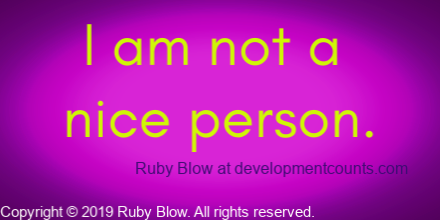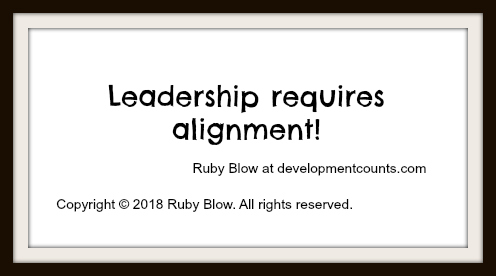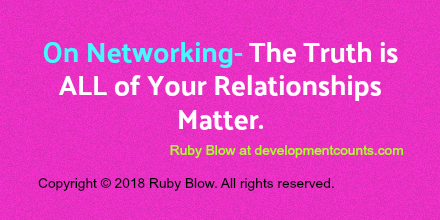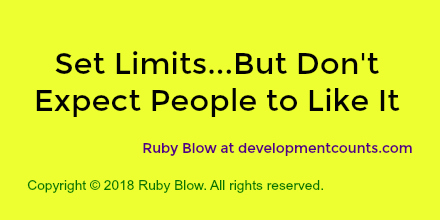Harness the Power of Rejection
No one likes being rejected. However, if you can learn to harness the power of rejection, it will absolutely change every element of your life.
I don’t mean by becoming a sociopath who doesn’t care what anyone thinks or says or how they impact others. What I mean is by learning to embrace rejection as a natural part of life. So that the fear of rejection doesn’t hold you back.
This past week and a half I’ve been in at least three or four situations involving others that on some level included an element of fear, frustration, anger or irritability that was related to the feeling of being rejected.
Types of Rejection
As far as I can tell there are a couple of different types of rejection:
- The first type of rejection is that of feeling unwanted. Some of us fear rejection in terms of romantic love relationships. Others fear rejection in terms of not succeeding in business- the fear that no one will want or support our service or product.
- The second type of rejection is that of feeling criticized. A few of the vocal or even silent judgement others may harbor or express. A concern about not being “good enough,” that can lead to not trying, not starting, or not finishing.
- The third type of rejection involves an internal sense of humiliation, perhaps connected to “not winning a competition, contest or game.” Rejection that comes with not living up to one’s own potential. The type of rejection that comes from seeing someone else succeed and feeling like “that should be me.”
Humiliation/Loss Type
I got a chance this past weekend to witness the humiliation type of rejection in my six-year-old nephew. The type that comes when he’s playing a game and realizes that either he’s not going to win or that he’s actually losing. It is a visceral reaction that comes over him. It is a combination of feeling upset, hurt, angry and even infuriated. His eyes well up, he pouts, he starts to look around at others with anger in his eyes. He might even throw something or stomp or yell.
Let’s face it: many adults have their own version of this display. In many ways it is a healthy expression of authenticity that we learn to manage (or dare I say…hide). Some would say he has a healthy sense of competition. What impressed me the most was that at his age, he can still express openly what so many of us feel internally.
The feeling that “This isn’t fair, I should be getting what I want.” He’s at an age where it is still relatively OK to be angry, hurt and even openly jealous of other people. When one can still throw a tantrum and while people want to teach how to not throw a tantrum. They struggle to teach you to be OK with someone else’s victory when it appears to come at your loss.
The underlying lesson is that your “more than” does not equal my “less than.” Your celebration does not equate my subordination. Not unless you make it mean that.
Feeling Unwanted/Not Chosen Type
I really don’t know the answer of how to deal with this type of rejection. What I can tell you is what helps me. The first step is not comparing my life to others’ lives; not comparing my relationships to other peoples’ relationships; not comparing my business to other peoples’ business.
Sometimes people get into the practice of comparing because they’re really trying to figure out what they want and trying to figure out who they are. The problem is that we all have a lot in common, yet we are all very different. If I really try to succeed in a way that looks like someone else’s success, then there’s really no way for me to win.
Instead I’d rather focus on what is mine to do.
- When I notice someone else’s success,
- Someone else’s happiness,
- Someone else’s love,
- Someone else’s amazing experience…I think to myself that must feel amazing. Then I internalize that feeling of amazement and I celebrate that person.
Their path and their success have nothing to do with my path and my success, nor does my failure have anything to do with them.
The way I’ve dealt with or continue to try to deal with the fear of rejection is to recognize that whenever someone has felt rejected by me…it is highly likely that I’m not thinking about them as much as they are thinking about me. I know that sounds cocky, but what I mean to say is when you were thinking about how someone rejected you, nearly 100% of the time they are not thinking about you at all.
When you do this you are engaging in self flagellation. It’s a punishment for not living up to some standard that someone else has. Try not to personalize “rejection.” Everyone has a right to their preferences. For each person that you’re not a match with personally or professionally, there are probably two or three other prospects.
Feeling Criticized Type
Lastly, learning to deal with criticism is probably one of the most effective and impactful things you can do to change your life. There are often elements of truth found in peoples’ critiques of us. The key is recognizing that the criticism in and of itself has nothing to do with your worth or value. The criticism is giving you ways to understand someone else’s experience of you. It may also provide you with some ways to do some things different from what you have done in the past. In most cases there’s no reason to go into a lengthy exclamation of why you do X, Y, Z the way that you do. There is no reason to proclaim being misunderstood. In fact, that approach invites more criticism.
It is best to consider the person who is giving the critique. Is it someone who has your best interest at heart? Or is it someone who intends to do you harm? If it is in fact someone who is invested in you and you are invested in them, Stephen Covey would say “Seek first to understand then to be understood.”
Drop your ego. Listen and try to be open. It is only the people who truly care about you who spend time trying to give you a critique. That person is invested in building a better future with you, whether it be in a personal or a business relationship.
I am not saying that one should endure toxic ongoing criticism from loved ones. In a satisfying relationship the ratio of positive to negative statements is about 5 to 1, according to the longitudinal study by Dr.s John and Julie Gottman.
Embrace Rejection
How many things are you holding back on in your life because you are afraid of the outcome not being exactly what you hope it will be? Embrace rejection as a natural part of existence. Release the idea that rejection will in and of itself kill you or be insurmountable. It is what we tell ourselves about rejection that leads to depression, anxiety, and inability to cope.
When you fail: Pick yourself up and try again!
If you fail: Pick yourself back up and try again!
Quite simply put…life will present you with many opportunities to pick yourself back up and try again! There is no reason to avoid rejection.
Copyright © 2017 Ruby Blow. All rights reserved.
Share your thoughts on Linkedin, Facebook, Twitter or log in to one of your accounts below to comment. Subscribe to my YouTube channel.





